|
Abu Uthman ibn Bahr al-Kinani al-Basri, also known as, Al-Jahiz, was born in the caliphate (Islamic State) of Basra, Iraq in 778. It is said that he was born with an unquenchable thirst for knowledge despite his family being poor. The name Al-Jahiz translates to “The Goggle-Eyed”, a name that was given to him because his eyes were larger than normal. According to scholars and testimonials of family members, physically, he was described as a dark skin man, the grandson of a black cameleer. Not much is known about his early life, but information suggest that he would sell fish to help his family earn income, when he wasn’t soaking up knowledge from reading or attending lectures. Al-Jahiz and other youth of the day would gather at the main Mosque of Basra and discuss several topics to seek as much understanding as possible. In addition to the gatherings at the Mosque, he would attend various lectures on several scientific topics; zoology, language, philosophy and writing were the topics that interested Al-Jahiz the most. He consumed information as if his appetite could never be satisfied over a twenty-five year period, helping to set the foundation for a man who is considered the greatest of the Arabic writers. Writing would change Al-Jahiz’s life and help him earn his place in history. He began his career as a writer after he wrote an article about the Caliphate of Basra; the massive amounts of knowledge he obtained over the years helped him become a very knowledgeable writer. Over his lifetime, Al-Jahiz wrote over two-hundred books covering subjects such as zoology, poetry, philosophy, lexicography, rhetoric, etc. Al-Jahiz was a person who would be considered a genius and ahead of their time; he suggested that the Arabic grammatical system become overhauled two-hundred years before it was actually overhauled by Ibn Mada. In 816 AD, Al-Jahiz moved to Baghdad along with many other scholars due to the encouragement of the Abbasid Caliphate Dynasty; the Caliphate wanted to expand the popularity of his library, the “House of Wisdom”. Al-Jahiz was considered to be a very knowledgeable person and a very capable teacher. His reputation was so respected that Caliph Al-Ma’Mun wanted him to teach his children. Unfortunately, the Caliph’s children were afraid of Al-Jahiz’s eyes and he did not teach the children. Of the two-hundred books written by AL-Jahiz, only thirty have survived the years. His most famous book is the Kitab al-Hayawan or Book of Animals. This book is the reason Al-Jahiz his considered “The Father of The Theory of Evolution”. The Book of Animals is seven volumes of anecdotes and descriptions of over 350 animals; Al-Jahiz was studying evolution and natural selection before Charles Darwin. Al-Jahiz’s book Kitab al-Bukhala or the Book of Misers is where he showed his prose style of writing, a style that influenced modern Arabic writing. Book of Misers is one of the reasons Al-Jahiz is considered one of the greatest Arabic prose writers in history. The Book of eloquence and Demonstration and On the Zanj are two other popular books that Al-Jahiz wrote and survived the times. After living in Baghdad for a considerable amount of time, Al-Jahiz moved back to his hometown of Basra before he died between 868 and 869 AD. A lifelong scholar turned writer would not only influence the Abbasid Caliphate Dynasty, but he influenced the Arabic world and beyond. He became the “Father of The Theory of Evolution” just because he had a love for zoology, writing and teaching. He is a giant within the Arabic world and an unknown influence to the rest of the world, until now. Abu Uthman ibn Bahr al-Kinani al-Basri aka Al-Jahiz, we proudly stand on your shoulders. J.A Ward Click here to learn more about the On the Shoulders of Giants book series!! References: Roders, J.A. (1946). World’s Great Men Of Color Volume 1 New York, New York: Simon & Schuster https://en.wikipedia.org/wiki/Al-Jahiz http://muslimheritage.com/scholars/al-jahiz https://mvslim.com/the-father-of-the-theory-of-evolution-al-jahiz-and-his-book-of-animals/
1 Comment
Francis Nwia-Kofi Ngonloma was born on September 21, 1909, in Nkroful, Ghana, to parents Kofi Ngonloma and Elizabeth Nyanibah. As a young boy Nkrumah had a love for education, a passion that would help him excel in school. He received an early education attending mission schools in Accra, Ghana before completing his grade school education at the Prince of Wales’ Achimota School in Accra, Ghana. Nkrumah graduated from Achimota in 1930 and worked as a teacher until 1935, during this time he was introduced to ideas of Black Nationalism, liberation and anti-colonialism. 1935 was also the year that Nkrumah left Ghana for the United States to earn a college education. He would attend the historically black institution Lincoln University located in Oxford, Pennsylvania. Nkrumah earned his Bachelor of Arts in Economics in 1939 and his Bachelor of Theology in 1942 as a Lincoln University student. Following his time at Lincoln, he enrolled into the University of Pennsylvania where he earned a Masters of Philosophy and a Masters of Education by 1943. During Nkrumah’s time as a college student, he experienced the rise of black consciousness in America through Garveyism, Black Nationalism, Pan-Africanism and the African American response to the Jim Crow laws. Nkrumah was a co-founder of the African Students Association of America and Canada, helped to create of the West African Student’s Union, and played an important role in organizing the 5th Pan-Africanist Congress. As a believer in a united black Africa, Nkrumah often convened with various black thinkers, educators, leaders and idealist throughout the African diaspora, trading ideas and learning new information about liberation. In May of 1945, Nkrumah left the United States for London, England where he studied as a PhD. student at the London School of Economics; later in 1945, Francis Nwia-Kofi Ngonloma officially changed his name to Kwame Nkrumah. He did not complete his studies to earn his PhD. because he was embarking on a mission much greater. Even though he left his formal educational setting he never stopped learning, he became well versed in politics, organizing, leadership, nation building, etc. In 1947, Nkrumah returned to Ghana as an intellectual, political and tactical weapon his people could use to liberate themselves. Before his return to his homeland Nkrumah earned a reputation around the world as fierce force fighting for freedom, justice and equality for black people. Nkrumah was well equipped to contend with white supremacy. After returning to Ghana, he became the general secretary of the United Gold Coast Convention (UGCC), an organization that created strategies to help gain their independence from England. As a member of the UGCC Nkrumah directly challenged British rule and their oppressive laws against the people of Ghana; Nkrumah and the UGCC were awakening a fire of freedom in the people of Ghana. By 1949, Nkrumah and the UGCC parted ways due to differences in philosophies, he then created his own Convention People's Party (CPP). Under the banner of the CPP Nkrumah and the people were putting immense pressure on the British who ruled Ghana. The Nkrumah led CPP lobbied for self-government, universal franchise, a separate house of chiefs, and many more constitutional changes. Nkrumah’s ideas and organization was not welcomed by the British, he was imprisoned for his political activities and given a sentence of three years. During his incarceration the CPP continued to challenge British politics by protesting and also winning the 1951 political elections. With members of the CPP making political decisions, Nkrumah did not have to serve his full three year sentence. In 1952, the political landscape of Ghana changed when Nkrumah was elected as Prime Minister; his presence meant that the British could not influence the leaders of Ghana. A five year plan was created to rid the Gold Cost of British rule and to strengthen their mission by working together with their fellow African countries. In 1957, Ghana officially gained its independence from the British due to the efforts of the CPP and Kwame Nkrumah. Dr. Martin Luther King Jr befriended Nkrumah and the two shared philosophies during King’s visit to Ghana in 1957. Both men admired many aspects of the other and were able to grow as leaders within their respective countries. The New Republic of Africa was formed three years into Nkrumah’s tenure as Prime Minister of Ghana. With ideas of African unity rooted in Pan-Africanism and Black Nationalism, Nkrumah created alliances with as many of his neighboring countries as he could. In 1963, the Organization of African Unity was formed with the goal of creating a league of African states, a collective that would improve the conditions for as many African people as possible; later in 1963, Nkrumah was awarded the International Lenin Peace Prize by the Soviet Union for strengthening peace among their comrades. By 1966, what is described as economic and political instability was present within Ghana and the CPP led government. Nkrumah and the CPP were overthrown by a Joseph Ankrah led coup d’état in 1966, driving Nkrumah and his family into exile. Sekou Tuore offered Nkrumah refuge in Conakry, Guinea as a friend and as a means to continue their mission of African liberation and unity. Nkrumah died of cancer in 1972 in Bucharest, Romania as an African leader who has his imprint on history. Fueled by his basic human right to be free and receive equal treatment, Nkrumah and the CPP led Ghana to their independence from the British and helped inspire other African nations to seek their independence. He was not only an inspiration to people on the continent of Africa but he inspired African people around the world. Francis Nwia-Kofi Ngonloma aka Kwame Nkrumah, we proudly stand on your shoulders. J. A. Ward Click here to learn more about the On the Shoulders of Giants book series!!! On April 4, 1928, Marguerite Annie Johnson was born to parents Bailey and Vivian Johnson in St. Louis, Missouri; Angelou was nicknamed "Maya" by her older brother Bailey Jr. As a three-year-old Maya and Bailey Jr moved to Stamps, Arkansas to live with their grandmother because their parents divorced. Their grandmother’s financial situation was more favorable than their parents because she owned a general store and could provide them with what they needed. An eight-year-old Angelou was raped by her mother's boyfriend while visiting her mother in St. Louis, Missouri. Eight-year-old Angelou testified against the man that raped her, as a result, a number of her uncles caught the man and beat him to death. Too young to fully understand why the man was beaten to death, young Angelou felt his death was her fault and did not speak a word for five years. During her high school years, she would attend schools in both Arkansas and California before she dropped out to become the first black woman streetcar conductor in San Francisco, California. She eventually re-enrolled into high school and graduated at the age of seventeen, three weeks later she gave birth to her only son. Angelou would marry a Greek man named Tosh Angelos who was an electrician, once worked as a sailor and aspired to become a full-time musician. Angelou’s marriage to Tosh Angelos lasted only a few years before the couple divorced. Angelou would continue pursuing dance and even found herself a contemporary and dance student with the legendary Alvin Ailey. They grew a friendship that led to the two forming a dance pair called “Alvin & Rita” which performed for collegiate black Greek organizations. At the time Angelou lived in San Francisco, she remarried before moving to New York to study African dance under Pearl Primus, a notable Trinidadian dancer, a year later Angelou and her family moved back to San Francisco. Angelou was laying the foundation as a dancer and singer to one of the most extraordinary and influential careers a person could have. In 1954, Angelou divorced her second husband but found work as a Calypso dancer and singer in the Purple Onion nightclub. Following a suggestion by the owners of the Purple Onion, Angelou created her stage name "Maya Angelou" to use as a performer rather than her birth name. The uniqueness of her name helped her stand out from the other performers she was competing with. Angelou was a very talented performer and even earned a role in the opera Porgy and Bess which allowed her to travel the world. The opera appeared in twenty-two countries exposing Angelou to a plethora of opportunities her career can offer. While visiting the various countries Angelou had a goal of learning as many languages as she could, as a result, she learned a number of different languages and cultures. In 1957, she recorded her first album as a singer titled Miss Calypso, following her success as a calypso singer and dancer. Angelou was finding success early as a performer, she appeared in plays on Broadway and through other vehicles, one play she appeared in was the inspiration behind the 1957 film Calypso Heat Wave, Angelou was the composer of the songs she sang in the film. She also acted in the play Cabaret for Freedom which she co-wrote with a man named Godfrey Cambridge. In 1959, Angelou was inspired to become an author and even joined the Harlem Writers Guild where she learned from some of America’s most prolific authors; the incredible historian Dr. John Henrick Clarke was one of the writers Angelou learned from. The inspiration from the writers guild helped her become published within newspapers such as The Arab Observer and The Ghanaian Times, she also appeared on the Ghanaian Broadcasting Corporation programming which was produced in Accra, Ghana. While living in Ghana, Angelou became a feature editor for the African Review from 1964 to 1968, she also worked as an assistant administrator for the School of Music and Drama at the University of Ghana. After being inspired by Dr. Martin Luther King Jr, she became the Northern Coordinator for the Southern Christian Leadership Conference. Angelou would also work with Malcolm X to build his Organization of African American Unity until his untimely death. In 1968, Angelou wrote, produced and narrated a ten-part documentary titled Blacks, Blues, Black!, which helped connect the Blues to the black people who created the music and the conditions they lived in. In 1969, Angelou published her first book “I Know Why the Caged Bird Sings” which is a memoir of her early life. The book was a major success and led to her having a plethora of opportunities as a writer, performer, speaker, etc. She would write a number of books that told her story from various stages of her life; Gather Together in My Name, Singin' and Swingin' and Gettin' Merry Like Christmas, The Heart of a Woman, All God's Children Need Traveling Shoes, A Song Flung Up to Heaven, and Mom & Me & Mom are the names of the books. She wrote around thirteen poetry books, And Still I Rise is her most-well known poetry book. Angelou wrote the screenplay Georgia, Georgia in 1972 which was produced by a Swedish film company, she also wrote the soundtrack for the screenplay. In 1970, she was nominated for the National Book Award, nominated for a Pulitzer Prize in 1972, two Tony Award nominations in 1973, one Tony Award nomination in 1977, and she received the North Carolina Award in Literature in 1987. She was named Woman of the Year in communications by Ladies' Home Journal in 1976 and regarded as one of the most influential women by the Ladies' Home Journal in 1983. As a writer, she produced scripts for television shows Sister, Sister and Brewster’s Place. She wrote and produced her full-length film Sister, Sister before directing her first movie Down in the Delta in 1998. Later in 1998, Angelou was inducted into the Women’s Hall of Fame, in the year 2000 she was awarded the National Medal of Arts, eight years later she received the Lincoln Medal. In 2014, Maya Angelou died as a legend that will never be forgotten. Her contributions to writing, music, film, television and public speaking are still felt to this day. Her historic poem And Still I Rise has inspired black women to become the greatest versions of themselves for decades. Angelou was a multi-talented blessing to black America and the world as a whole. Miss. Marguerite Annie Johnson, also known as Maya Angelou, we proudly stand on your shoulders. J.A. Ward Click here to learn more about the On the Shoulders of Giants book series!! |
Details
Categories
All
Click Here to join our mailing list
|
Contact Us: |
Connect With Us |
Site powered by PIT Web Design

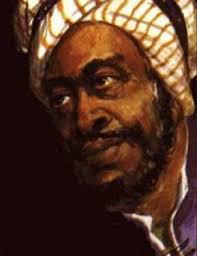
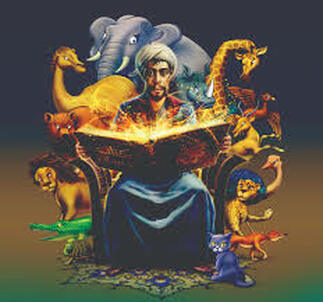
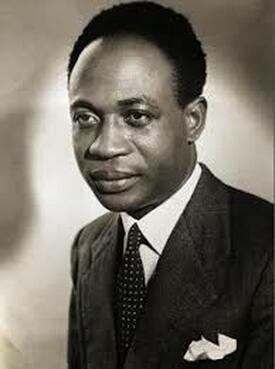
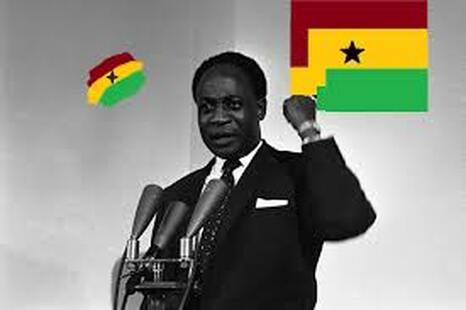
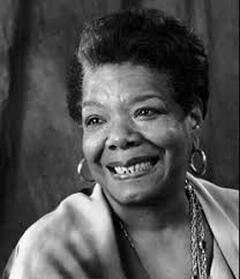
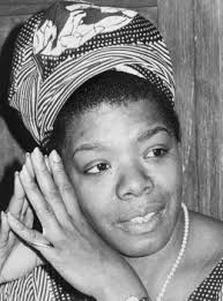
 RSS Feed
RSS Feed



